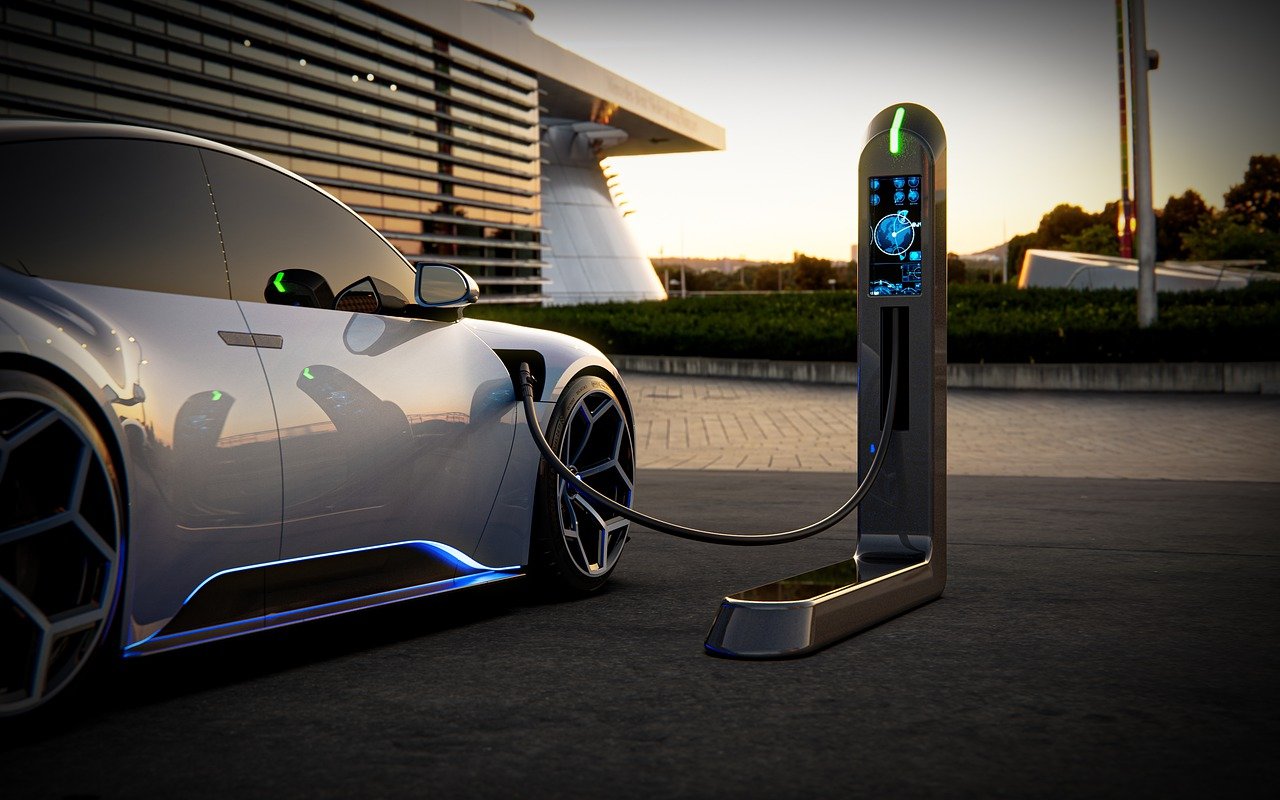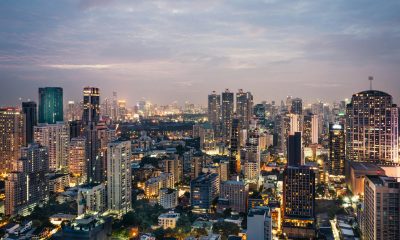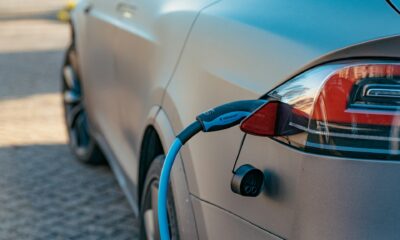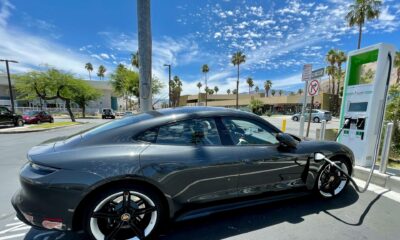Featured
Southeast Asia Occupies the Fifth Place in the Development of Electric Cars
Southeast Asia is on the maps of all companies that bet on electric cars. Tesla is also close to signing an agreement to build a factory in Indonesia. The plant would produce up to a million electric cars a year and would be just the first in a series of other plants. In Elon Musk’s sights, there is not only a sharply growing consumer market, but also the mineral resources of which Indonesia is rich.

If there is one sector that more than others will conform to trade balances and not only future ones, it is that of electric cars. The giants of the United States and China dominate, of course, but as also happens in other sectors (from tech production to green technologies ) Southeast Asia is also destined to enjoy between the two litigants.
If you want to find out more about the development of electric cars in Southeast Asia and to find the latest economic news of the day, download for free the Born2Invest mobile app.
Southeast Asia, home to more than 650 million people, is experiencing a rapid increase in the adoption of electric cars, motorcycles, and buses
There are many reasons behind this real boom. One of the key factors is the historic urbanization process that the region is experiencing. As more people move to cities, the demand for efficient and sustainable transport is growing. Not to mention the fact that the population of the countries of the South-East is on average very young, with a generation that, like everywhere else, is much more attentive to environmental issues.
Another key factor is represented by government policies and initiatives that promote its adoption. Governments across the region have implemented a variety of measures to encourage the use of electric vehicles, including tax incentives, rebates, and subsidies for the purchase of electric vehicles. In some countries, such as Singapore and Thailand, there are even plans to completely phase out traditional petrol-powered vehicles and replace them with electric vehicles.
In addition to government policies, the growing availability of charging infrastructure also has an impact. With more charging stations being installed across the region, EV owners are feeling better about range anxiety, which is a top concern for many potential EV buyers. In some countries, such as Indonesia and the Philippines, private companies are also investing in charging infrastructure, helping to accelerate the adoption of electric vehicles.
Government policies in countries from Southeast Asia
All regional governments are pushing for the development of electric cars. Suffice it to review some of the policies adopted by the various executives. The Singapore government has set a goal of phasing out all internal combustion engine vehicles by 2040 and replacing them with cleaner and greener alternatives, including electric vehicles. To achieve this goal, the government has implemented several measures, such as incentives and tax rebates for EV buyers, the installation of EV charging infrastructure, and the deployment of electric buses.
Thailand has approved an EV policy package, which includes tax incentives and reductions, investment in charging infrastructure, and subsidies for the purchase of EVs. Under this policy, EV buyers can receive up to approximately $3,200 in tax relief, while EV makers are eligible for a variety of tax incentives, including exemption from import duties and corporate income tax.
Indonesia is the largest car market in Southeast Asia and has set a goal of making 20% of all cars on the road electric by 2025, and several measures have been introduced to encourage the uptake of EVs. The Philippines has launched various policies and initiatives such as the Electric Vehicle Roadmap, which aims to accelerate the development and adoption of electric vehicles in the country.
Vietnam has also recently made efforts to promote EVs, including implementing an EV pilot project in Hanoi and introducing tax incentives for EV buyers. The government has also set a target to make at least 5% of all cars on the road electric by 2025.
From Tesla to BYD
But the region is also emerging as a manufacturing hub. Notably Thailand, with several international automakers opening EV manufacturing plants in the country. Bangkok has adopted a series of measures to encourage foreign investment. Companies such as BMW, Mercedes-Benz, and Nissan have opened EV manufacturing plants in Thailand, taking advantage of the skilled workforce, favorable business environment, and government incentives.
BMW has opened an EV manufacturing plant in Thailand, which began operations in 2019. The plant produces plug-in hybrid versions of the BMW 5 Series and 7 Series, as well as battery packs for BMW’s global EV production network.
Mercedes-Benz also opened an EV manufacturing plant in 2019, while Nissan launched an EV manufacturing plant in Thailand as early as 2013. The plant produces the Nissan Leaf electric car, as well as battery packs and motors for electric vehicles for Nissan’s global electric vehicle manufacturing network. Toyota has announced plans to invest 10 billion euros in the development of batteries for electric vehicles, with the aim of producing up to 70,000 batteries a year in the Southeast Asian country.
Several Chinese electric vehicle companies are also very active, including BYD, which has opened an electric bus manufacturing plant in the country, and GAC Motor, which is working on an electric vehicle manufacturing plant in Thailand.
Very large investments also in Indonesia. The Hyundai plant is set to produce 250,000 electric vehicles a year. Toyota has announced plans to invest $2 billion in the development of electric vehicles in Indonesia over the next four years. The investment will include the creation of a new research and development center in Indonesia and the production of hybrid and electric cars.
Tesla is also close to signing an agreement to build a factory in Indonesia. The plant would produce up to a million electric cars a year and would be just the first in a series of other plants. In Elon Musk’s sights, there is not only a sharply growing consumer market, but also the mineral resources of which Indonesia is rich. Last summer, after a meeting with President Joko Widodo, the tycoon signed a 5 billion dollar agreement for the supply of nickel, a fundamental element for the production of batteries.
Several local and international companies have also invested in the electric vehicle sector in Malaysia. One of the most notable investments is that of Chinese electric vehicle giant Geely, which has partnered with Malaysian Proton to develop and produce electric vehicles.
In addition to the investments of the automakers, Malaysia is also home to several companies involved in the production and distribution of EV components and charging infrastructure. One of the most notable companies is GreenTech Malaysia, which is responsible for the development and deployment of electric vehicle charging infrastructure in Malaysia.
The local realities of Southeast Asia
The growth of the EV industry in Southeast Asian countries has created opportunities for local businesses as well. Thai battery maker Energy Absolute has invested heavily in producing electric vehicle batteries, while electric scooter-sharing service provider Bounce Thailand has launched its services in Bangkok, offering commuters a sustainable and convenient transportation option.
Another major investment is that of Malaysian automaker Perodua, which has announced plans to produce and launch its first electric vehicle by 2025.
Gojek, the Indonesian ride-hailing and delivery giant, has announced plans to launch a fleet of electric vehicles, aiming to have 2,000 electric cars and 20,000 electric motorcycles on the road by 2025. partnerships with several EV manufacturers, including BYD and Mahindra Electric, to acquire and operate EV fleet.
Blue Bird Group, a leading Indonesian taxi and ride-hailing company, has launched an electric taxi service in Jakarta using Nissan Leaf electric cars. The company plans to have 2,000 electric taxis on the road by 2025.
__
(Featured image by LeeRosario via Pixabay)
DISCLAIMER: This article was written by a third party contributor and does not reflect the opinion of Born2Invest, its management, staff or its associates. Please review our disclaimer for more information.
This article may include forward-looking statements. These forward-looking statements generally are identified by the words “believe,” “project,” “estimate,” “become,” “plan,” “will,” and similar expressions. These forward-looking statements involve known and unknown risks as well as uncertainties, including those discussed in the following cautionary statements and elsewhere in this article and on this site. Although the Company may believe that its expectations are based on reasonable assumptions, the actual results that the Company may achieve may differ materially from any forward-looking statements, which reflect the opinions of the management of the Company only as of the date hereof. Additionally, please make sure to read these important disclosures.
First published in StartupItalia, a third-party contributor translated and adapted the article from the original. In case of discrepancy, the original will prevail.
Although we made reasonable efforts to provide accurate translations, some parts may be incorrect. Born2Invest assumes no responsibility for errors, omissions or ambiguities in the translations provided on this website. Any person or entity relying on translated content does so at their own risk. Born2Invest is not responsible for losses caused by such reliance on the accuracy or reliability of translated information. If you wish to report an error or inaccuracy in the translation, we encourage you to contact us.

-

 Business2 weeks ago
Business2 weeks agoTopRanked.io Weekly Affiliate Digest: What’s Hot in Affiliate Marketing [Best Technology Affiliate Programs]
-

 Business6 days ago
Business6 days ago2.5 Billion People Watch Quiz Shows Every Day. Masters of Trivia (MOT) Is Letting Them Compete
-

 Crypto2 weeks ago
Crypto2 weeks agoBitcoin Steady Near $68K as ETF Outflows and Institutional Moves Shape Crypto Markets
-

 Crypto1 day ago
Crypto1 day agoMiddle East Tensions Shake Crypto as Bitcoin and Ethereum Slip

























